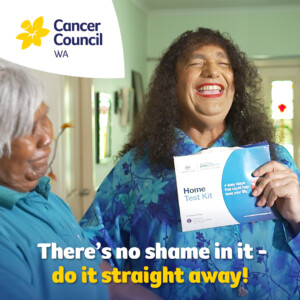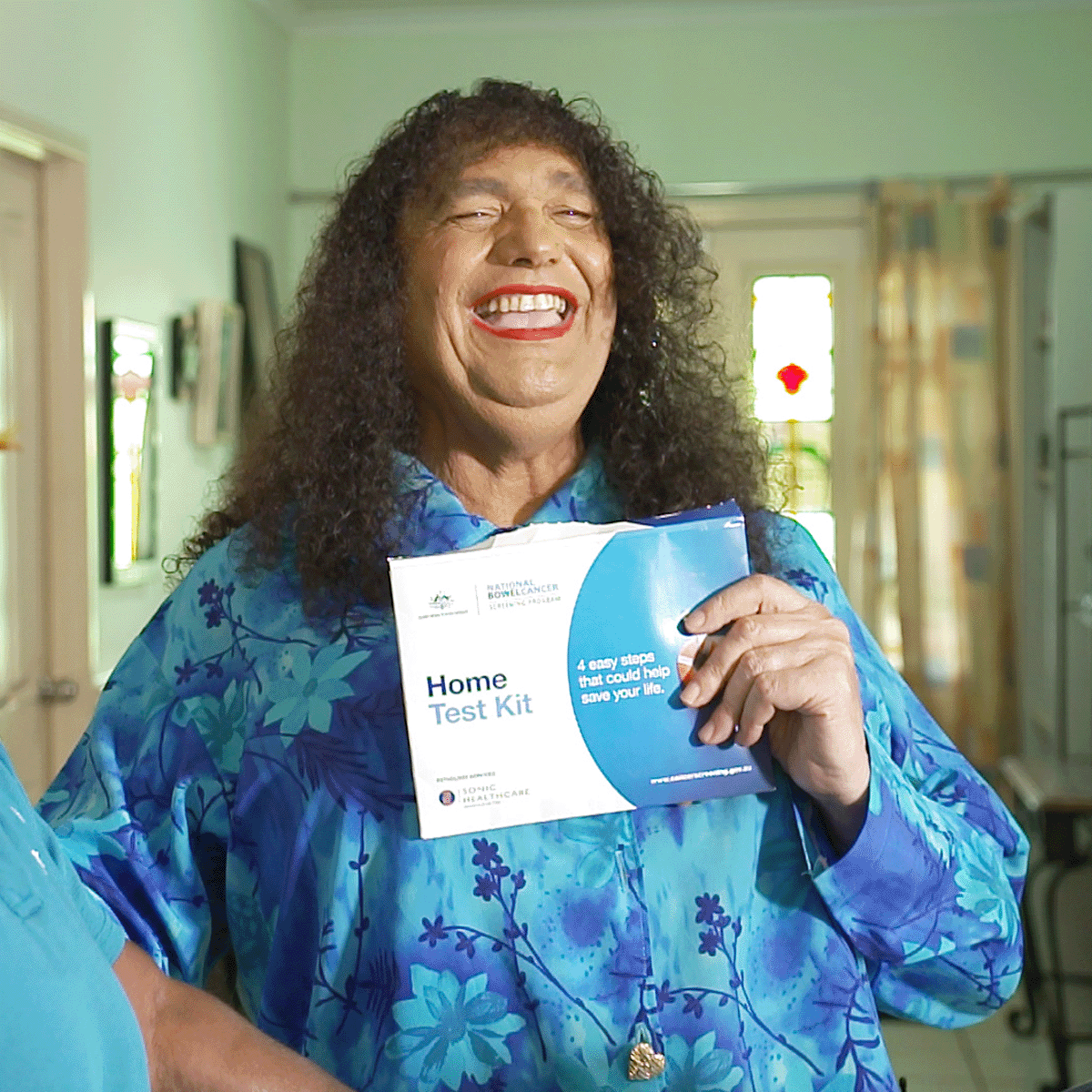Bowel cancer screening – this simple step can save your life.
Bowel cancer, also known as cancer in the large intestine, is the third most common cancer affecting Aboriginal Australians, and the second most common cancer to cause death.
Screening can help identify bowel cancer when it’s in its early stages, which can improve survival and quality of life.
What is bowel cancer screening ?
Bowel cancer can be found early using the free bowel cancer screening home test kits.
The Australian Government sends kits out every two years to the home address of all eligible Australians aged 50-74, with a listed address on the Medicare registry or Veterans Card. The test helps check for bowel cancer in its early stages.
It’s easy to do – the test is free, quick, simple and causes no pain or discomfort.
The home test kit requires you to collect two poo samples and return them in the reply-paid envelope to a laboratory.
The first sample must be stored in your refrigerator until you have collected both samples. Once you have two, they should be sent off straight away.
Wondering how to use the kit?
The instructions are in the box, but you can also have a yarn with a health professional about it if you’re not sure how to do it. Or you can watch this video for more information on how to complete the home test kit.
Why should you do the test?
Completing the home test kit when you receive it is important because bowel cancer often develops with no symptoms.
The kits are designed to detect bowel cancer in its very early stages. When detected early, more than 90 per cent of bowel cancers can be treated successfully.
So, it’s best to do the test as soon as you receive it. There’s no shame in it – everybody needs to do it for their own health.
If you have family members or mates who are aged 50-74, have a yarn about the test with them – people are more likely to do it if encouraged by a friend or family member!
If you’re aged 50-74 and haven’t received a kit or if you want to order another kit, click the button below or complete the National Cancer Screening Program order form.
The latest bowel cancer screening campaign
Cancer Council WA have re-launched our bowel cancer screening campaign to raise awareness of bowel cancer amongst the Aboriginal West Australian community.
The campaign encourages eligible people to do the National Bowel Cancer Screening Program (NBCSP) home test.
This bowel screening campaign is running across radio and social media platforms in the Kimberley and Pilbara regions over May and June.
We teamed up with Mary G, an Aboriginal personality, educator, and radio presenter to raise awareness of bowel cancer amongst the Aboriginal community. Together, we are encouraging more people to do the NBCSP test when they receive it in the mail.
We originally developed the campaign in consultation with the Aboriginal Health Council of Western Australia and Derbarl Yerrigan Health Service. In the process we also consulted Aboriginal Medical Services, Elders and Aboriginal staff from local clinics and organisations in the regions, including the WA Country Health Service.
How can you help?
If you live in one of the targeted areas, share this information with your friends and family. If you are a health professional working in one of the targeted regions, simply share the campaign resources provided in your newsletters to your networks, via your website and social media platforms.
Help us ensure all eligible Western Australians feel informed and empowered to take the test.
Campaign assets to share:

If you have any questions or would prefer to be emailed the files, please contact the Cancer Council WA Bowel Screening Team bowel@cancerwa.asn.au
More information
- Find out more about bowel cancer, the National Bowel Cancer Screening Program home test kits, and eligibility.
- Visit the National Bowel Cancer Screening Program Frequently Asked Questions.
- Order a free replacement kit on the National Cancer Screening Register website.
This project is supported by the Brigid Anne Milner and Cecilia Marie West Endowment Trust established by the generous bequest of the late George Henry Milner.

